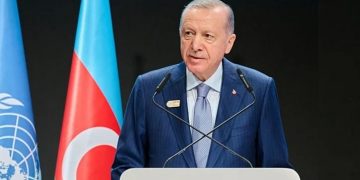Turkey has voted for the constitutional amendments that changes the political system from parliamentary into presidential republic. With a 1.25 million margin of votes, amendments received the support from 51.2 percent of citizens, whereas 48.59 percent of electors voted against.
The referendum was held for the sake of 18 amendments to the constitution that abolish the post of prime minister and consolidates president’s powers. Henceforth, the head of Turkish state can appoint vice-presidents, ministers and high-ranking officials. The new system also makes it possible for the president to declare a state of emergency and issue presidential decrees.
After the ‘yes’ result in referendum, Turkey is expected to follow more assertive foreign policy. Amendments in constitution and changes in the political system has given the government (“the president”) confidence to negotiate with its foreign foes and allies.
This transition from the parliamentary system to the presidential system marks a turning point in Turkish history, also naturally in its foreign policy approach.
he April 16 constitutional referendum in Turkey established yet again that foreign policy is closely related to domestic politics.
President Recep Tayyip Erdoğan is attending a NATO summit in Belgium and travelling to Russia, India, China and the United States.
In these crucial meetings, Mr. Erdoğan will have stronger standing while negotiating crucial issues with world’s leading powers.
Economic relations and Syria is hot topics in the meeting with Russians. He will have to make clear Turkish standing in key issues to the new unpredictable American President Mr. Trump. Business circles are anxiously watching EU-Turkey relations strained in eve of the referendum. China and India might have important implication for future strategies in Turkish foreign policy.
As I mentioned in my previous articles*, there is an intense “behind the curtain” rivalry between Anglo-American camp and Continental Europe. Relations with the former is unclear and must be reconstructed over mutual trust; whereas the later have generally failed to welcome Turkey as a rising power in general and Mr. Erdoğan in particular.
Turkey will establish a balanced relationship with all major powers.
It is obvious that America, Russia, European countries and the rest of the world must have been reconsidering their approach towards Mr. Erdoğan and Turkey after the change in Turkish political system.
In short, relations between Turkey and leading global powers can be summarized in this way: Those who will approach Turks in a friendly and sincerely manner and consider relations with Turkey based on equality and mutual respect will certainly be benefit from the relationship with Turkey.
More Articles by Ahmed Necip YILDIRIM
* Read: New Global Balance of Power
* Read: Turkish Referendum: Life-or-death issue!
* Read: Turkey and Europe: We need one another!
* Read: Will the EU Collapse?
* Read: Arabs should act for the “Unfinished Revolutions”













